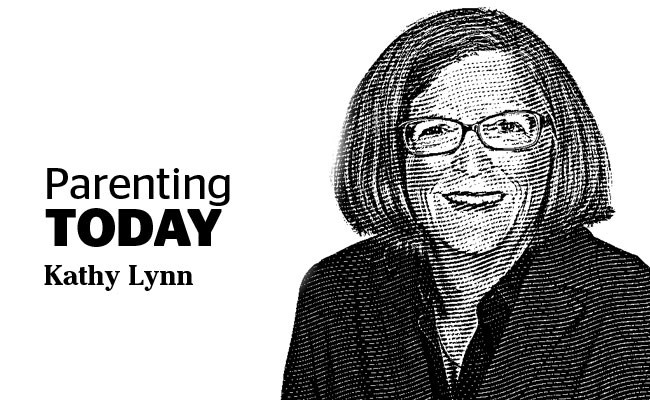When my daughter was 10 months old she spent a week in hospital with a gastrointestinal disorder.
After she came home, our family physician asked me to bring her to my next prenatal appointment. He explained that his plan was to allow her to play in the exam room and that he would not touch her. He noticed in hospital that she had developed a fear of anyone in a white coat.
So, I brought her to all my prenatal appointments and slowly but surely he spent time with her and when her brother was born she had overcome her fear.
Community health nurses who often hold clinics to immunize young children tell me that parents will sometimes tell their kids that they will not be getting a vaccination that day. Then, when they arrive, the nurse is facing a child who is confused because they received the wrong information from their parents.
Of course, in any subsequent visit to the health unit or doctor’s office they won’t believe a word their parent says. Why should they?
According to Kristina Duda’s recent article in Quill.com there are three common fears shared by children when they go to the doctor. One is separation. This happens if a child needs to go to another office for a test or procedure. One is pain, which they may recall from previous visits. Lastly, there is the unknown. There are steps we can take to reduce these fears.
The best way to help your children be comfortable when they have a health appointment is to stay calm yourself and be honest with your child.
“Today you are going to have a vaccination with special medicine. The nurse will put a small dot of cold liquid on your arm and then inject the medicine with a special needle. It might sting a bit for a moment and be sore for the next day. But you can handle that.”
Parents often ask what they should do if he cries, after all that’s not handling it.
Actually, it is. Crying is a healthy and natural reaction to discomfort. So comfort him without being in any way critical.
It is somewhat ironic that parents will actively avoid telling kids that they are going to be vaccinated but kids who are going in for surgery or other serious procedures have it explained to them in an age-appropriate way.
It is often the anticipation and lack of knowledge that is the greatest fear producer. When your child knows what to expect he can prepare himself emotionally. You can talk to him about it and let him know that no matter what, he has your support.
Besides being calm and honest there are other things you can do to reassure your child. One is to find some of the many children’s books that are available about visiting the doctor. Choose one that is age appropriate. Read it to her before you go and bring the book with you to read in the waiting room. Not only does this give her information, it’s a chance for her to ask questions about what will happen to her.
Some kids like to role play. You be the doctor and she the patient and then switch places.
If they are afraid, validate their fears. Don’t dismiss them because then you won’t know what they are thinking.
Listen to them. Let them know that it’s okay to be nervous but that you will be there with them and they can talk to you about anything that’s bothering them.
Develop a positive relationship with your doctor or any of the nurses at a community health-care clinic.
Children look to us to see how they should respond to adults in their life. If we display a positive, trusting and friendly attitude toward our health care providers they will follow suit.
And never, ever use inoculations or any medical procedures as a threat.
If you tell your child that they will get a shot if they misbehave, that will completely destroy any trusting relationship your child will have with the medical profession.
And don’t overreact. Your child may have no fears or concerns so go with her attitude.
All our kids are going to need health care so make it as easy as possible for your child and for you.
Duda’s article is available at bit.ly/2jOePEN.
Kathy Lynn is a professional speaker and author of Vive la Différence, Who’s In Charge Anyway? and But Nobody Told Me I’d Ever Have to Leave Home. If you want to read more, sign up for her informational newsletter at parentingtoday.ca



